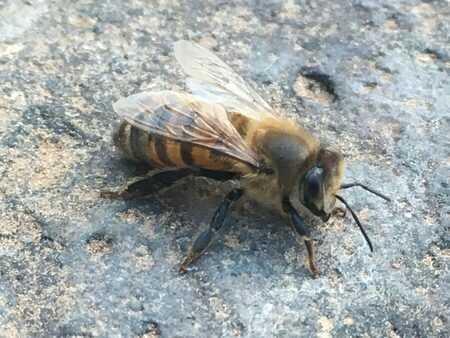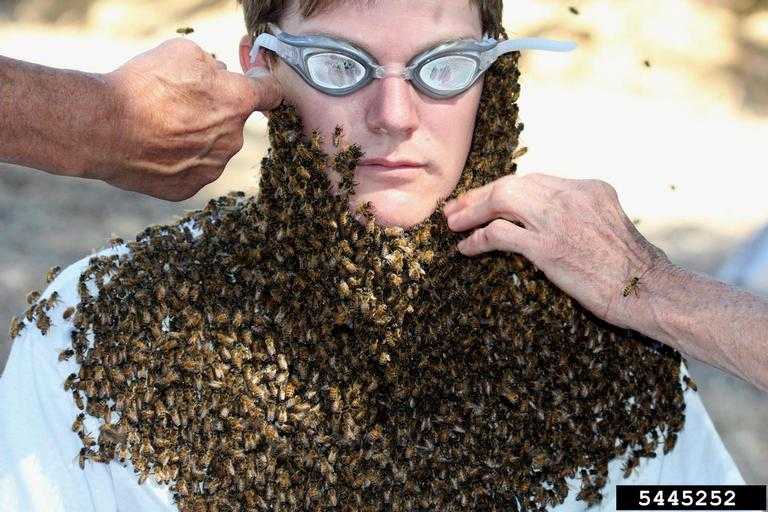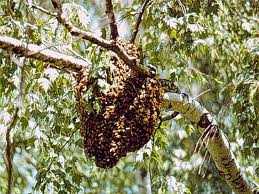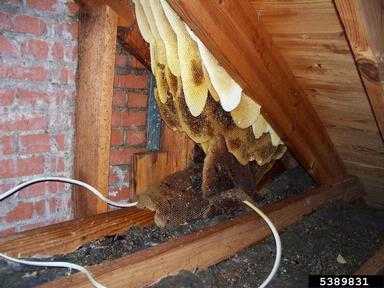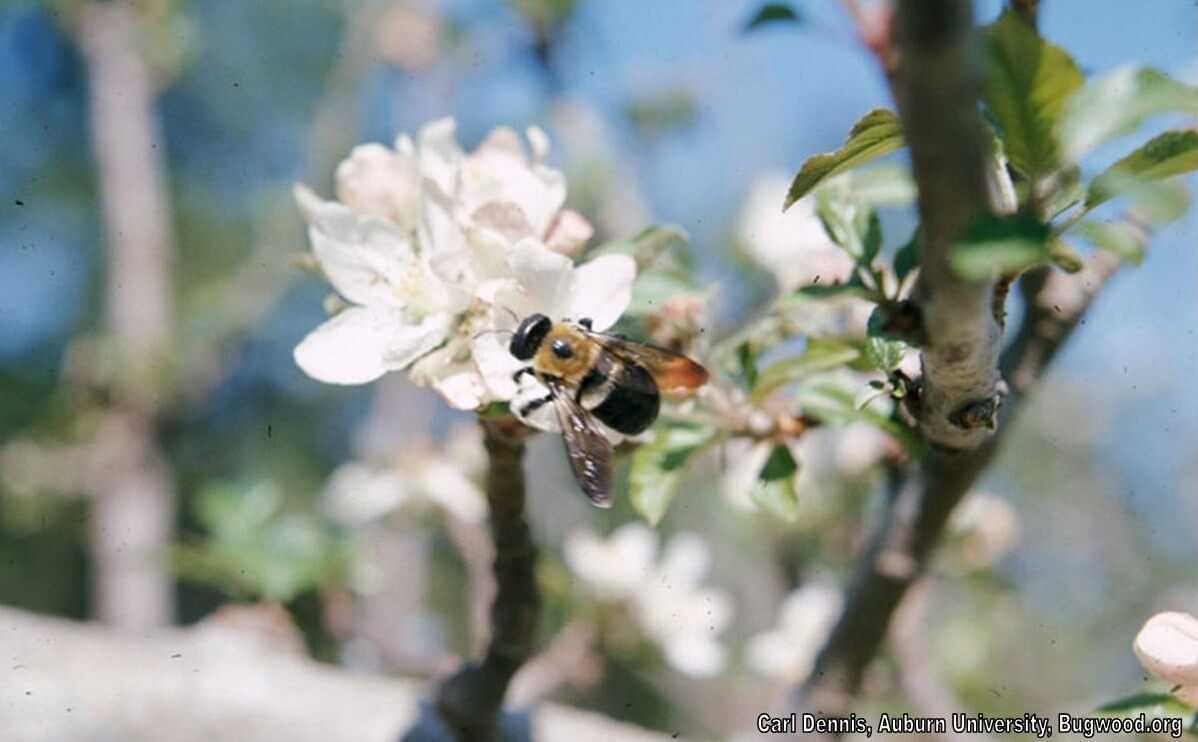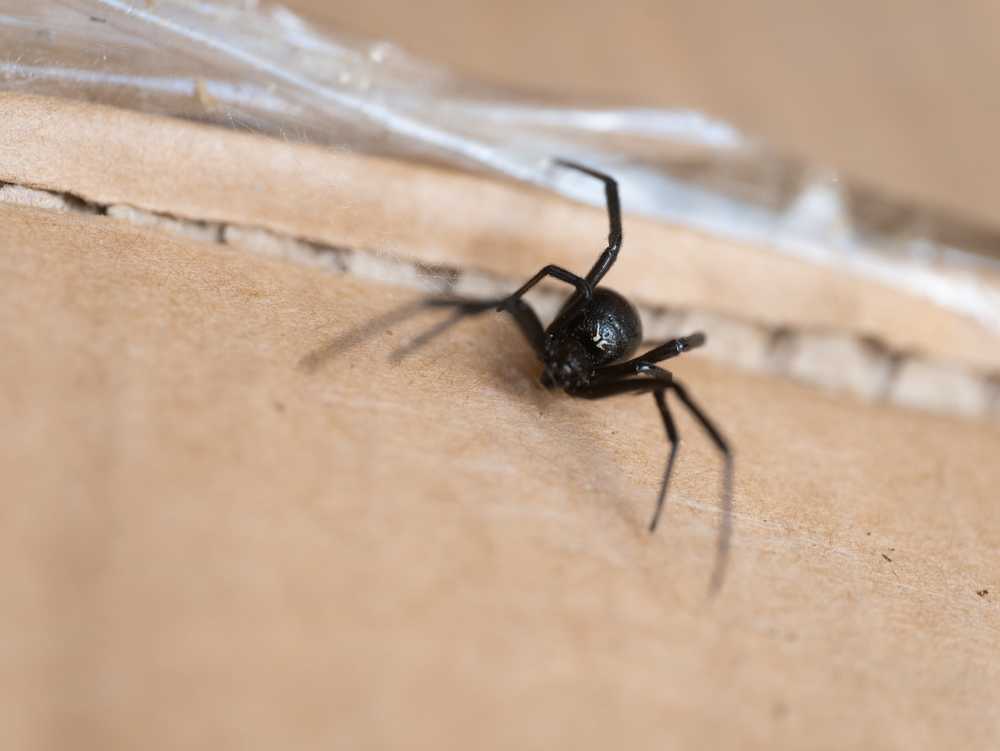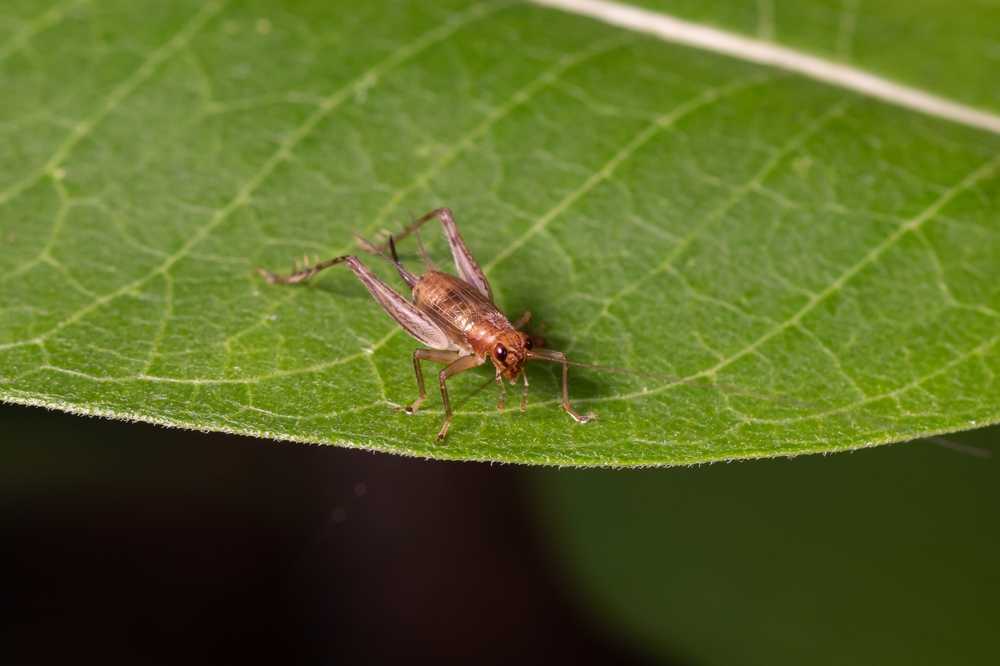Bees (Anthophila)
Treatments for this pest are included in these services:
Dealing With Bees in Arizona
Love them or hate them, bees are crucial to our food supply as one of the primary pollinators of the fruits and vegetables we eat. However, the presence of beehives on your property is a potential risk, especially for those allergic to bee stings. If you find a beehive, it’s recommended you remove it live because bees are important to our ecosystem.
Arizona Beehives and Bee Swarm Behavior
Bee swarms are very common during the spring and fall in Arizona. When a bee colony matures and grows too big, the colony splits. The swarming bees leave the old colony with a new queen bee in search of a new home. These nomadic bees fill up on honey for energy before leaving their old hive. It may not seem like it, but swarming bees are actually less aggressive because relocating uses a lot of energy and they have no hive to protect.
When you see a large cluster of bees, they are generally resting during their journey to a new colony. They will usually rest on trees or homes in a large ball mass and leave after 48 hours.
Bee Sting Prevention in Arizona
Bees are usually not aggressive and only sting when threatened or when they are trying to protect their hive. To prevent being attacked by a swarm of bees all together, keep still if you find a nearby hive. Bees are more likely to attack a moving object than a stationary one. Protect children and pets from being stung by leaving them inside when doing landscape maintenance, as undiscovered hives are often irritated and provoked at this time.
If you happen to find yourself being attacked by bees, there are a few ways to minimize the damage:
- Run as fast as you can. Don’t try to brush or shoo away bees; this irritates them more.
- Cover your head with your arms. Bees them to target the head and eyes.
- Seek refuge in the closest car or building. Indoors, bees are easily disoriented and head for windows. If your house is cool, the bees will drop off you. If you sought protection in your car and some bees made their way inside, drive a few miles with the windows rolled down to release them. They will return to their hive.
Safely Remove Beehives in Arizona
You should never remove a beehive on your own. Honeybees can be even more dangerous than scorpions or snakes. Instead, it’s best to call a professional who specializes in live hive removal. As soon as the hive has been moved and relocated, the honey must also be completely removed, and the area will have to be sealed to prevent the colony from returning and stop other insects from infesting the area.
Once the hive has been removed, you should regularly check your property for beehives. They can typically be found on trash cans, irrigation boxes, BBQs, trees, and bushes.
Protect The Bees in Phoenix and Tucson
It’s important that we all do our part to protect the bees from extinction. Since 2006, the American honeybee has been mysteriously disappearing—and since then, one-third of honeybee colonies in the United States have vanished. Without bees, many farmers would experience significant crop failure and increases in food costs.
If you want to help save the bees, here are a few things you can do:
- Feed bees by planting a native flower garden.
- If you live in a rural area, you could start a beehive.
- Sponsor a hive by donating to a bee preservation organization.
- Support your local beekeepers by buying their honey and bee products.
- Let your friends and family know the importance of bees and how they can help.
- Have a local beekeeper or live bee removal service relocate Arizona bee swarms.
FAQs About Bees in Arizona
What types of bees are common in Arizona?
Arizona is home to various bee species, including honey bees, carpenter bees, and Africanized bees, also known as “killer bees.” Each type has different behaviors, with Africanized bees being more aggressive when defending their hives.
Are Africanized bees a threat to people and pets?
Yes, Africanized bees are more defensive and can be dangerous if they feel threatened. They tend to swarm aggressively and can chase intruders for long distances, making them a particular concern for families and pets.
How can I tell if I have a bee problem on my property?
Signs of a bee infestation include an increased number of bees around your home, visible hives or nests in structures, and persistent buzzing in specific areas. It’s crucial to avoid disturbing hives and to call a professional for safe removal.
What should I do if I find a bee hive near my home?
If you discover a hive, avoid any attempts to remove it yourself, as this can provoke the bees. Responsible Pest and Scorpion Control specializes in safe and humane bee removal to protect both your family and the local ecosystem.
When should I contact Responsible Pest and Scorpion Control for bee removal?
If you notice a hive on or near your property or see a large number of bees, it’s time to call in professionals. Responsible Pest and Scorpion Control can handle bee removal safely and effectively, ensuring that your property is bee-free and safe.
